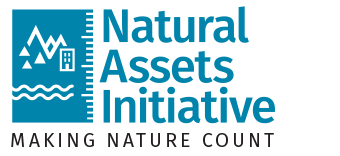MNAI project to help 30+ communities reduce costs, adapt to climate change
December 16, 2020 (Victoria, BC) – The Municipal Natural Assets Initiative (MNAI) has launched an Acceleration project that will help approximately 30 Canadian local governments determine how to deliver services – such as providing safe drinking water or managing floods, stormwater and rise in sea levels – in a way that’s cost-effective and resilient to climate change.
An anonymous donor and the Greenbelt Foundation are devoting $500,000 (see Greenbelt funding blog on MNAI.ca) to enable the local governments to simultaneously partner with MNAI to work with nature and accelerate their first step towards delivering some core services to communities from healthy, well-managed natural assets.
MNAI will work with the local governments build an inventory of their existing natural assets – such as their forests, wetlands, aquifers, beaches, etc. MNAI’s ongoing work with communities has shown that these natural assets can provide the same level of service as many engineered assets, and often at a much lower cost to the balance sheet and to the environment. Therefore, knowing what natural assets exist in their communities, what condition they’re in, and what services they’re providing, is the critical first step for local governments to take towards full natural asset management.
“More and more of Canada’s approximately 3,600 local governments are undertaking natural asset management,” said Roy Brooke, Executive Director of MNAI. “However, the rate of uptake is not commensurate with climate change adaptation, mitigation, biodiversity and infrastructure service delivery challenges this approach can help to address. Thanks to the Greenbelt funding, the Acceleration project will help address this by doubling the number of communities in Canada that are starting to understand, value and manage natural assets as vital infrastructure on which we depend.”
After a call-for-proposals, MNAI used a set of criteria to select local governments from across Canada of various sizes and service delivery challenges to participate (see below for initial list of participating local governments). As a final step in the project, MNAI will provide the local governments with their tailored natural asset inventory, a dashboard to support their decision making, and a roadmap on next steps they can take to increase or improve their natural asset management approaches.
Initial list of participating local governments:
- City of Charlottetown, PEI
- County of Dufferin, ON
- Town of Florenceville-Bristol, NB
- City of Kelowna, BC
- Municipality of the District of Lunenberg, NS
- City of Markham, ON
- Regional Municipality of Niagara, ON
- City of Peterborough, ON
- City of Prince George, BC
- City of West Kelowna, BC
- City of Abbotsford, BC
- City of Surrey, BC
- Halifax Regional Municipality, NS
- District of Kent, BC
- City of Moncton, NB
- Corporation of the County of Northumberland, ON
- Corporation of the Township of Langley, BC
- Town of Stratford, PEI
- The Corporation of the City of Mississauga, ON
- City of Orillia, ON
- City of Selkirk, MB
- Winnipeg Metropolitan Region, MB
Municipal Natural Assets Initiative is a Canadian not-for-profit that offers solutions to Canadian municipalities that are facing problems of aging infrastructure and ecosystem decline. MNAI’s mission is to make municipal natural asset management a mainstream practice across Canada in order to address climate change adaptation and mitigation and improve human and ecosystem health and well-being. Outcomes of natural asset management can include cost savings, improved ecosystem health, and enhanced community resilience.


